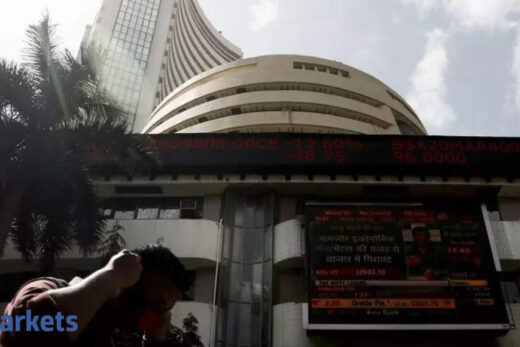Though equities remain near all-time highs, some sectors have gotten off to an uneven start this month, with the tech-heavy Nasdaq Composite down more than 2 per cent so far this week while the Dow Jones Industrial Average rose to a record on Thursday.
Recent data have also offered a mixed picture of what investors see ahead. While retail investors have been net buyers of stocks for 10 straight weeks, hedge funds have been sellers, client data from BofA Global Research showed, with the four-week average of net sales of equities by hedge funds hitting their highest levels since the firm began tracking the data in 2008.
“A lot of the good news is priced in,” said Deepak Puri, chief investment officer, Americas, at Deutsche Bank Wealth Management. “We are due for a little bit of fatigue.”
And while investors may not choose to actually follow the adage to “sell in May and go away,” the next six months have historically been a more challenging time for stocks. Since 1946, the S&P 500 has risen an average of 1.6 per cent from May through October, compared with a 6.8 per cent average rise for the other six-month period of the year, according to Sam Stovall, chief investment strategist at CFRA.
Investors next week will be watching quarterly results from companies such as Walt Disney Co, Marriott International and Tyson Foods, as a first-quarter reporting season in which corporate profits have come in far higher than expected draws to a close.
April’s Consumer Price Index, a closely watched indicator for inflation set to be released on Wednesday, will be another point of focus. Some investors have become skeptical of the Federal Reserve’s assurances that any inflation resulting from the government’s massive economic stimulus programs will be transitory, with prices for everything for raw materials to real estate already showing big gains.
“We see near-term volatility in inflation as the economic restart progresses, and believe markets underappreciate potential for medium-term price pressures,” strategists at BlackRock, the world’s largest asset manager, said earlier this week.
High inflation brings the risk of an earlier than anticipated scaling back of monetary support by central banks, while also potentially squeezing corporate profit margins and threatening to erode the purchasing power of longer-dated bonds.
Analysts at Societe Generale said worries over rising inflation are weighing on high-growth areas of the market, including Cathie Wood’s ARK Innovation ETF, which has wobbled in recent weeks after beating all other U.S. equity funds in 2020.
The S&P 500 tech sector has fallen 1.3 per cent as of Thursday, while the Russell 1000 growth index has pulled back 1.8 per cent.
“The fear of inflation is palpable in the equity market, where the high-growth areas … are really underperforming because of higher rate expectations,” Societe Generale said in a recent report.
Others, like Wells Fargo Investment Institute, expect a continuation of the powerful rally in cyclical stocks – shares of financials, industrials and other companies that can benefit most from an economic rebound – that has helped boost markets since late last year.
The firm is recommending that Wells’ financial advisers use volatility as an opportunity to buy for their clients, said Chris Haverland, global equity strategist at the Wells investment institute.
“We believe we are still early in the cycle,” Haverland said. With the economic and earnings growth that is expected in the next six to 12 months, he said, “we think that is going to support equity prices.”
Some market participants are saying the next few months may bring in to favor so-called defensive stocks – which are often expected to hold up better during periods of uncertainty. The S&P 500 healthcare and consumer staples sectors, generally considered more defensive groups, rose an average of 4.6 per cent in the May-October period since 1990, compared with a 2.2 per cent rise for the overall S&P 500, according to Stovall.
Julian Emanuel, chief equity and derivatives strategist at BTIG, recently upgraded his rating on the staples sector to “neutral” from “underweight,” citing the group’s strong dividends among other factors.
Puri, of Deutsche Bank Wealth Management, is betting the best approach is a mix of growth stocks, including those in the technology sector, along with shares in the financial and industrial sectors.
While Puri believes stocks may be due for a pullback, “when you compare to the other relative propositions that are out there … equities still look reasonably attractive,” he said.



